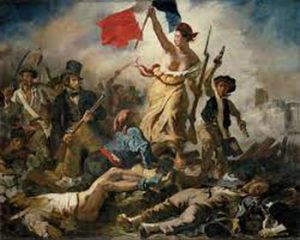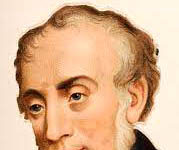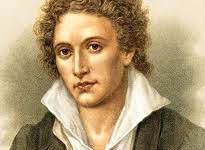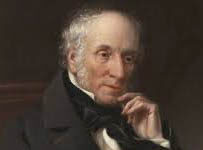Literature and Society
Literature and Society
Literature and Society
The dynamic relationship between literature and society resembles an intricate mosaic woven from the threads of human experience and imagination.. Just as a skilled conductor orchestrates a symphony, literature weaves itself into the very fabric of society, shaping and reflecting its values, aspirations, and complexities. This interplay between words and culture, like a delicate dance between partners, exerts a profound influence that transcends time and space.
Reflection of Society: Literature acts as a mirror that reflects the contours and hues of society, much like a polished mirror capturing the essence of those who gaze into it. It holds up a lens through which societal norms, beliefs, and conflicts are magnified and examined. An illustrative example is Charles Dickens’ “A Tale of Two Cities,” which portrays the tumultuous landscape of the French Revolution. By shedding light on the socio-political upheaval, Dickens not only offers insight into history but also prompts readers to ponder parallels with their own times.
Cultural Preservation: Literature serves as a vessel that safeguards the cultural heritage of a society, akin to an ancient artifact preserving the whispers of bygone eras. It immortalizes customs, traditions, and language, allowing them to transcend generations. The epic poem “The Iliad” by Homer, with its portrayal of ancient Greek values and heroes, encapsulates this role. The poem provides a window into the culture of a distant time, much like a preserved relic that bears testament to the longevity of human traditions.
Social Critique and Change: Literature functions as a voice that critiques societal flaws and advocates for change, much like a skilled orator addressing a crowd with passion and conviction. Authors wield their pens to challenge injustice and spark conversations on pertinent issues. Upton Sinclair’s “The Jungle” is a striking example, shedding light on the harsh realities of the early 20th-century meatpacking industry. This work ignited a public outcry, ultimately leading to reforms in food safety regulations and labor conditions.
Shaping Identity and Values: Literature weaves the threads of identity and values, akin to an artist crafting a portrait that captures the essence of an individual. It aids in shaping cultural identity by narrating stories that resonate with a community’s shared experiences. In “Bud, Not Buddy” by Christopher Paul Curtis, the protagonist’s journey during the Great Depression speaks to themes of resilience and hope, illustrating how literature fortifies values and offers a sense of belonging.
A Catalyst for Empathy and Understanding: Literature cultivates empathy and understanding among diverse groups, much like a bridge connecting distant shores. It enables readers to inhabit the lives of characters from different backgrounds, fostering compassion and breaking down prejudices. Harper Lee’s “To Kill a Mockingbird” exemplifies this role, as it delves into racial tensions in the American South. Through the narrative, readers are invited to step into the shoes of characters, prompting deeper reflections on social inequality.
Inspiration for Change: Literature serves as an inspiration for social change and activism, akin to a rallying call that mobilizes individuals towards a shared goal. Authors often present protagonists who challenge the status quo, motivating readers to question injustices and become agents of change themselves. In “Half the Sky” by Nicholas D. Kristof and Sheryl WuDunn, the authors use stories of resilience and empowerment to galvanize readers to address issues of gender inequality and promote women’s rights.
Cultural Dialogue and Exchange: Literature facilitates cross-cultural dialogue and exchange, much like a bridge connecting two distant lands. It enables readers to explore perspectives and narratives from diverse backgrounds, fostering a global understanding of human experiences. In “One Hundred Years of Solitude” by Gabriel García Márquez, the Latin American narrative tradition meets universal themes, inviting readers from around the world to engage in a cross-cultural conversation.
Catharsis and Healing: Literature provides catharsis and healing for individuals and societies alike, akin to a soothing balm that eases emotional wounds. Through shared stories, literature allows readers to confront traumas and challenges, offering a space for reflection and understanding. In Khaled Hosseini’s “The Kite Runner,” themes of guilt and redemption provide a framework for catharsis, enabling readers to process complex emotions and find solace in shared narratives.
The intricate interplay between literature and society is a vibrant dance that traverses time, culture, and generations. Like a master weaver crafting a rich mosaic, literature threads itself into the tapestry of human existence, reflecting, critiquing, and shaping the world around us. Through its diverse roles, literature amplifies voices, preserves legacies, and catalyzes change, serving as a testament to the enduring power of the written word. Just as a symphony resonates with harmonious melodies, literature resonates with the collective heartbeat of society, enriching our understanding of the human experience and fostering connections that transcend boundaries. 0 0 0.
Literature and Society
N.B. The article ‘Literature and Society’ originally belongs to the book ‘The Origin Evolution & Functions of Literature‘ by Menonim Menonimus. Literature and Society
Books of Literary Criticism by M. Menonimus:
- World Short Story Criticism
- World Poetry Criticism
- World Drama Criticism
- World Novel Criticism
- World Essay Criticism
- Indian English Poetry Criticism
- Indian English Poets and Poetry Chief Features
- Emily Dickinson’s Poetry-A Thematic Study
- Walt Whitman’s Poetry-A Thematic Study
- Critical Essays on English Poetry
- Tawfiq al-Hakim’s Novel: Return of the Spirit-An Analytical Study
- Tawfiq al-Hakim’s Novel: ‘Yawmiyyat Naib Fil Arayaf’-An Analytical Study
- Analytical Studies of Some Arabic Short Stories
- A Brief History of Arabic Literature: Pre-Islamic Period (500 AD-622 AD)
- A Brief History of Arabic Literature: Early Islamic Period (622 AD-661 AD)
- Reviews on William Shakespeare’s Works
- Reviews of Charles Dickens’ Works
- Reviews of John Milton’s Literary Works
- Reviews of Some Iconic Travelogues
- Shakespeare’s Sonnets-Critical Studies
- Analytical Studies of Selected Poems of Sarojini Naidu
- Analytical Studies of Selected Poems of Rabindranath Tagore
- Analytical Studies of Selected Indian English Poems
- Reviews of Selected Motivational Books
- Origin Evolution & Functions of Literature …
Additional Searches::
- The Functions of Literature
- Evolutionary Literary Study
- Functions of Literature
- Principles of Literature
- Literary Theory
- Literature and Society
- Relationship Between Literature and Society











